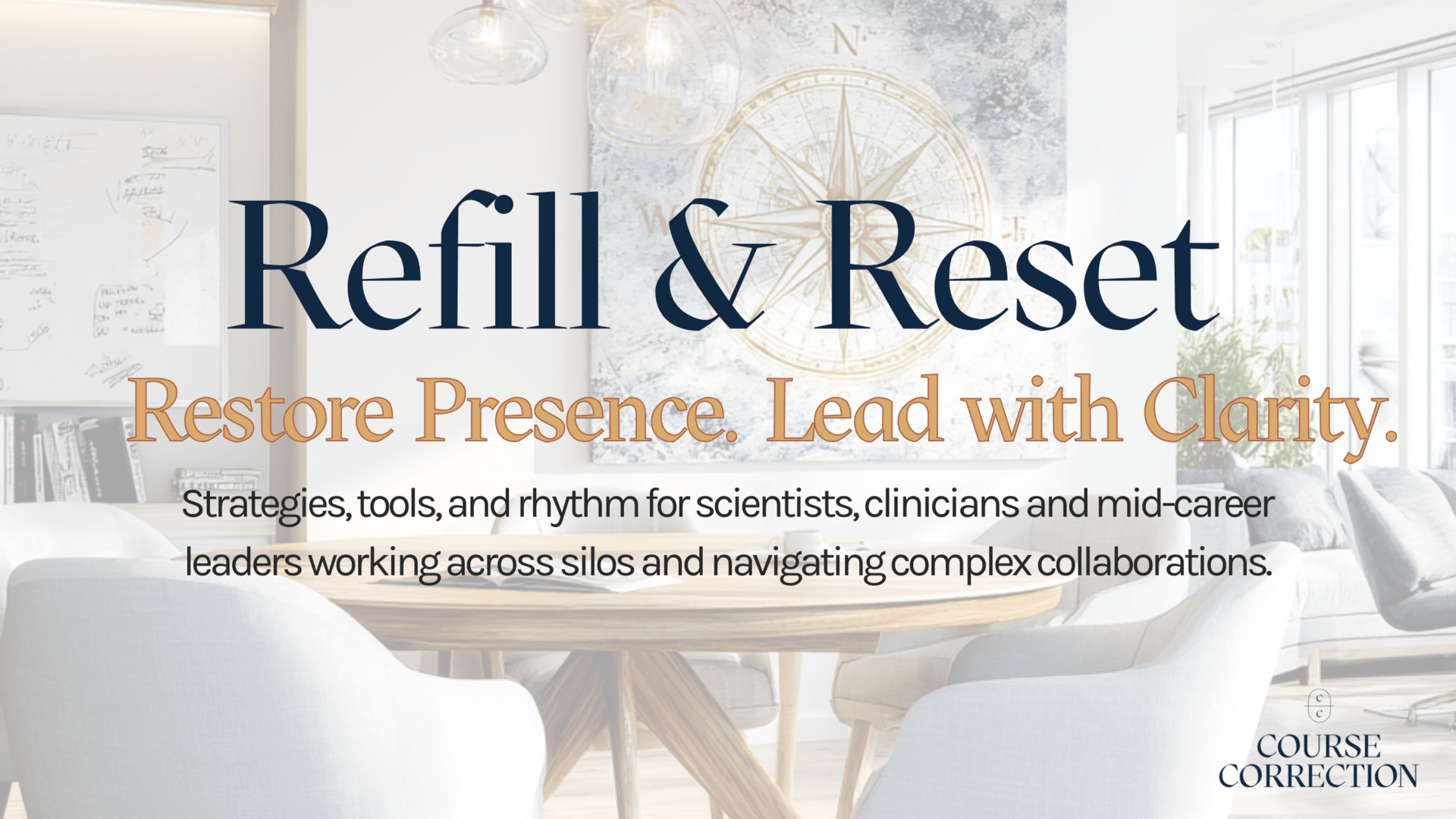The R & R Newsletter: Doing it yourself won’t get you scale — teaching will
Teach once, gain tenfold capacity tomorrow.

Feedback looks like a cost, but here’s the return… ✨
The process of giving feedback can be exhausting because it adds to your existing workload. Every request that lands on your desk whispers the same seductive lie: "Just this once, it's faster if you handle it." Your muscle memory kicks in. The familiar rhythm of solving, fixing, and completing feels like progress.
But here's what nobody tells you about that choice: every “just this once” rewires your leadership muscle memory for control instead of growth.
Letting someone else step up to the challenge, however, requires trusting what others are capable of, sometimes before they see it themselves.
Seen + Named
Leaders who prefer doing tasks over teaching maintain their comfort zone.
That grant or report that you'll rewrite instead of coaching someone through it?
That presentation you'll polish instead of showing them how?
Each choice creates a desk bottleneck that blocks your team's growth and your organization's expansion. What feels like control is actually constraint, limiting not just your capacity, but the collective potential of everyone around you.
Insight + Shift
Research from Gallup reveals the stark truth: managers who coach for development have almost 20% higher engagement from their teams compared to those who don't. Yet, most of us default to the faster fix, the familiar solution, the scripted path that keeps control in our own hands.
Doing feels safer. Teaching feels slower. But teaching is what scales.
Tools You Can Use
Mini-Reflection: The Teacher Who Multiplied You
Take two minutes this week for a brief reflection:
Remember back. Who believed in you before you believed in yourself? Write their name. Recall one phrase or practice they gave you that still shapes your work.
Look around. Who could help carry you further now? A mentor, peer, colleague, or friend? Write their name. Consider reaching out, even with a short note: “I could use your perspective on this. Could we talk?”
The best leaders I've worked with—those principal investigators and partners whose postdocs and associates become confident, capable contributors —understand something profound: feedback becomes the bridge, helping people walk into a strength they cannot yet see in themselves.
That reputation isn't magic. It's the quiet accumulation of feedback, learning opportunities, and trust. It's the faith of leaders who choose to believe in what others are capable of, even when the outcome isn't certain.
Mirror + Move Pair
To reclaim what has been silently given away, try this approach to get time and energy back. My hope is that you can shift your calendar and regain momentum.
System Mirror: What tasks remain in your hands because you believe teaching takes longer than performing them?
Select + Shift: Choose one task that repeats throughout your workweek. Devote five minutes this week to explaining the task instead of performing it yourself.
Leadership REFILL
Here's the paradox that changes everything: Delivering impactful feedback strengthens your team and leadership impact, enabling you to do what matters.
Faithfulness in leadership isn't measured by how much you do yourself, but by how much you entrust. The comfort of controlling things might be easier or more efficient in the short-term, but it's actually surrendering your greatest long-term leadership opportunity, the chance to multiply your impact through others.
Identity Return
Ready to transform your approach to feedback and delegation?
The RESET edition this Sunday delivers three research-backed tools: the Task Transfer Framework, Feedback Session Blueprint, and Feedback Flow Template, everything you need to convert insights into everyday leadership practices.
 | Leading alongside you, Maritza Salazar Campo, PhD  |
